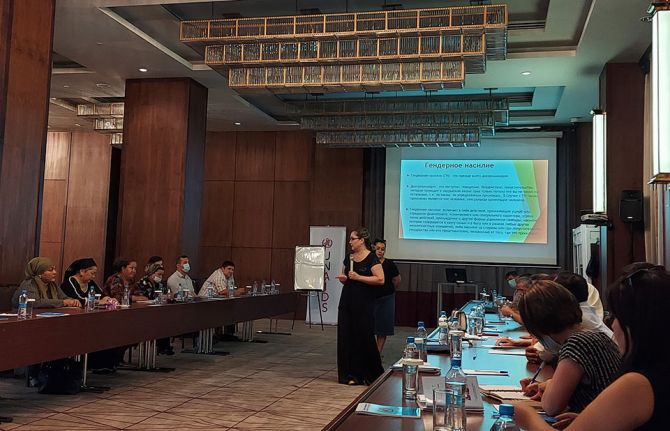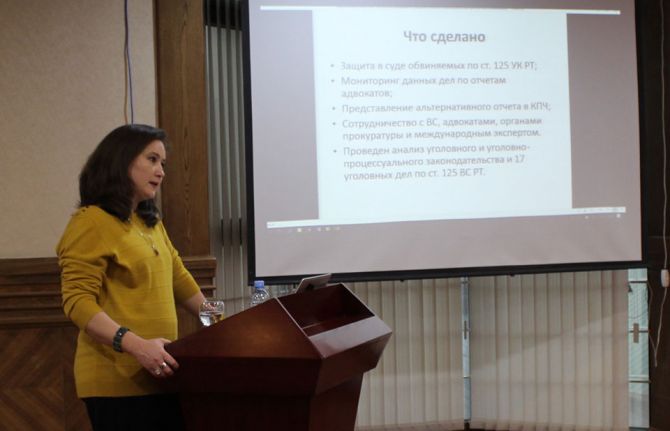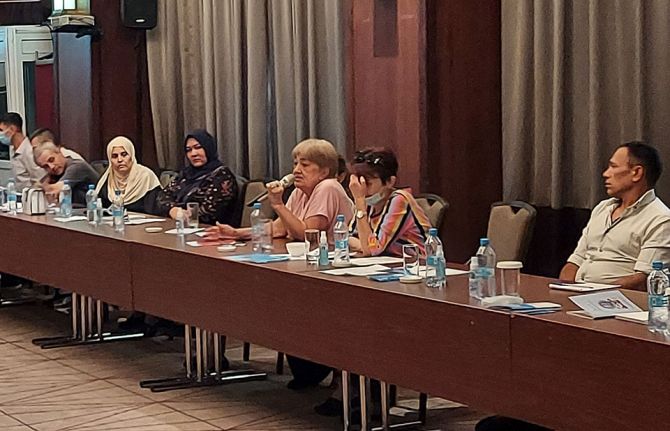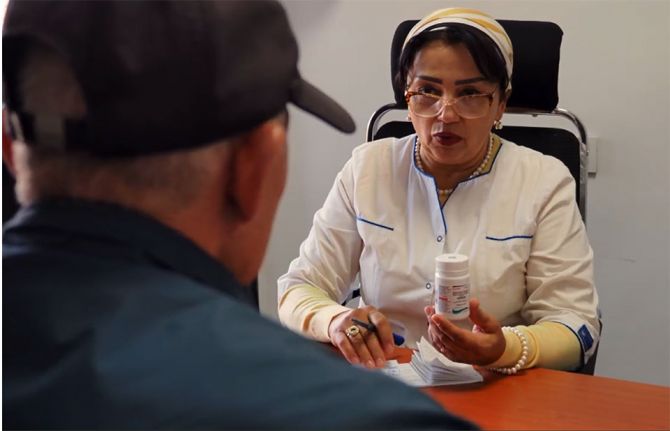



Feature Story
Don’t be silent on gender-based violence
04 October 2021
04 October 2021 04 October 2021Larisa Aleksandrova is a legal expert at the Center for Human Rights and has been protecting the rights of women living with HIV in Tajikistan since 2011.
For the past few months, she has been helping a lawyer to open a criminal case against a man who attacked his wife, Amina Khaidyrova (not her real name), and repeatedly threatened to rape her daughter from her first marriage. The prosecutor's office has so far refused to open the case, considering it a private family matter. According to the prosecutor’s office, if there are only minor injuries, the victim must seek to open a criminal case against the attacker by filing an application to the court by herself. The man is now in hiding and the prosecutor's office continues to refuse to open the case, now claiming that he cannot be found.
Ms Khaidyrova, who is living with HIV, will stop at nothing to get justice. She says that she has nothing to lose and fears for her life and the life of her daughter.
Ms Aleksandrova says that women who have been victims of violence often either do not report the assault to the police or withdraw the allegation, fearing the consequences. She says that women don’t report violence for a variety of reasons—some want to keep their family together, no matter what, others do not want publicity, but the majority are afraid of finding themselves without economic support, since women in Tajikistan are often economically dependent on their husbands.
“In general, women are ready to endure. And women living with HIV are even more willing to endure,” said Ms Aleksandrova.
She emphasized that there were rare cases when women living with HIV have sought help, but fear of disclosure of HIV status, stigma and discrimination, lack of support from family and friends, the vulnerability of people living with HIV because of the criminalization of HIV transmission, legal illiteracy and insecurity prevent women from asserting their rights in court.
Speaking at a training jointly organized by UNAIDS, the United Nations Development Programme and the United Nations Office on Drugs and Crime for 35 representatives of nongovernmental organizations working on human rights and gender-based violence prevention, Ms Aleksandrova presented the legal norms governing the legal status of people living with HIV. She also discussed the criminal legislation of the country on HIV, international and national standards for the protection of women’s rights and sexual and gender-based violence and mechanisms for the protection of women living with HIV who are victims of violence.
The participants analysed cases related to sexual and gender-based violence against women, reviewed and worked out strategies for prosecuting such cases and gave practical advice on strategies for dealing with gender-based violence. According to the participants, such training for nongovernmental organizations in Tajikistan is crucial if they are to reach more women, particularly women living with HIV.
“Community-based monitoring of violations of the rights of people living with HIV and their ability to access confidential HIV services is an important component of community empowerment to speak up and raise questions about the root causes that drive the spread of various forms of violence. These problems can only be resolved if communities are literate in the field of civil and international human rights and are ready to stand up for their rights and seek the proper implementation of the law against domestic violence,” said Nisso Kasymova, the UNAIDS Country Manager for Tajikistan.
Ms Aleksandrova believes that legal literacy is critical, but it is insufficient to solve the problem. She said that if a woman is economically dependent, she will not use her legal knowledge. “I always say that women need to be given confidence in the future, the confidence that they will not be thrown out into the street, that they will be able to protect themselves, they will be supported and they will be able to live on and realize themselves in life.” But you need to start small, she added, “Do not be silent, talk about the problem, demand and defend your right to life, health and economic independence.”
Region/country
Related
 Women, HIV, and war: a triple burden
Women, HIV, and war: a triple burden

12 September 2025


